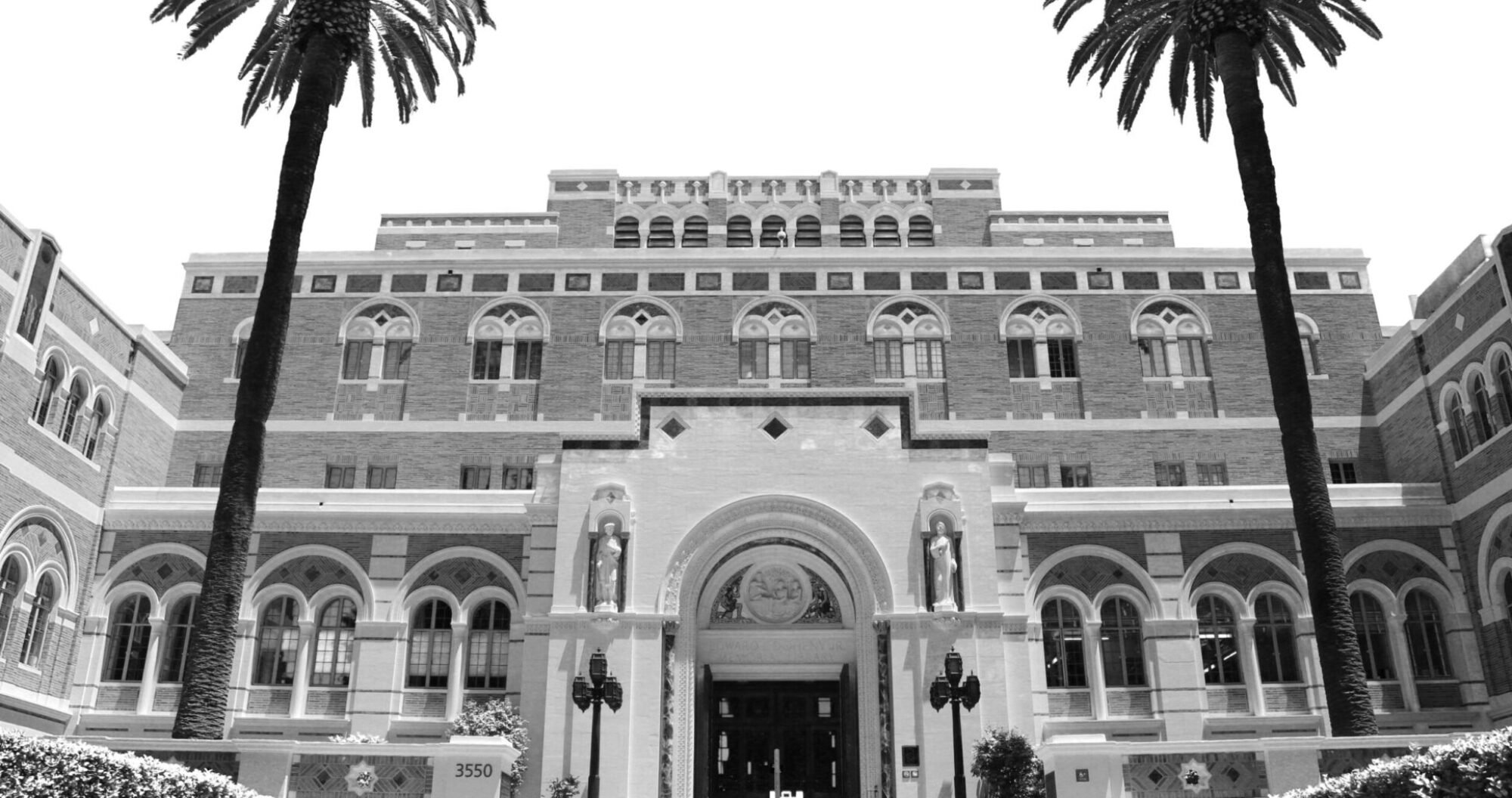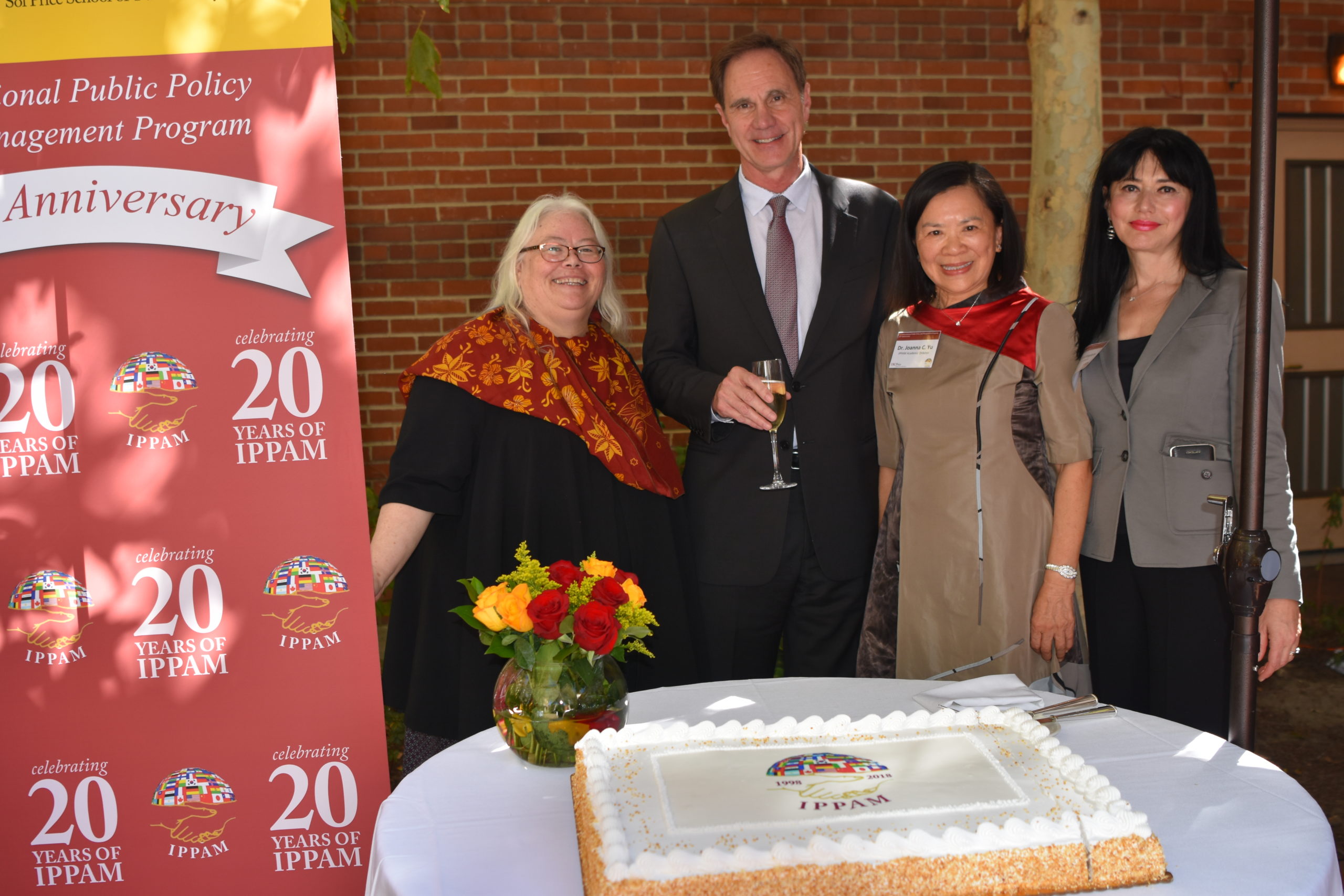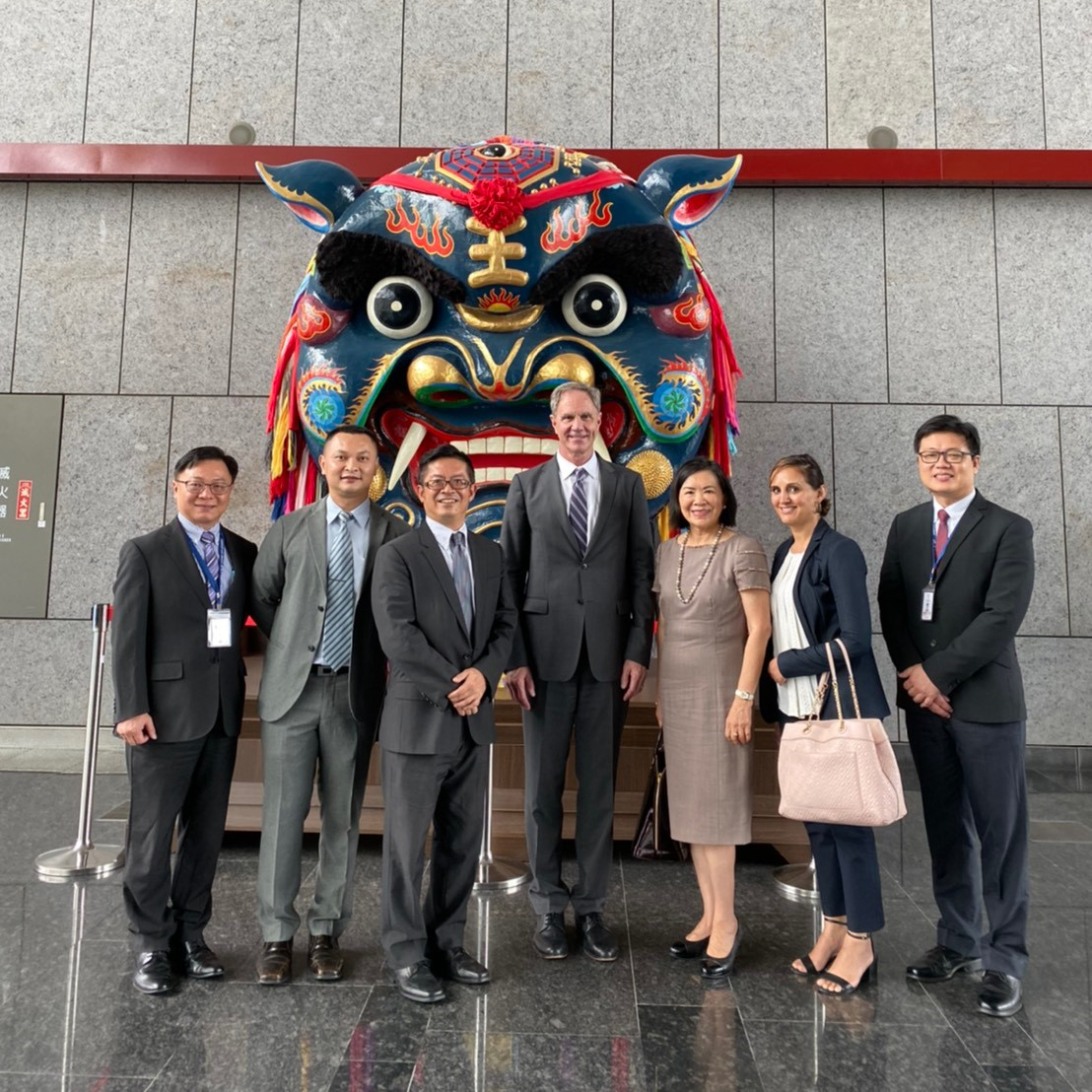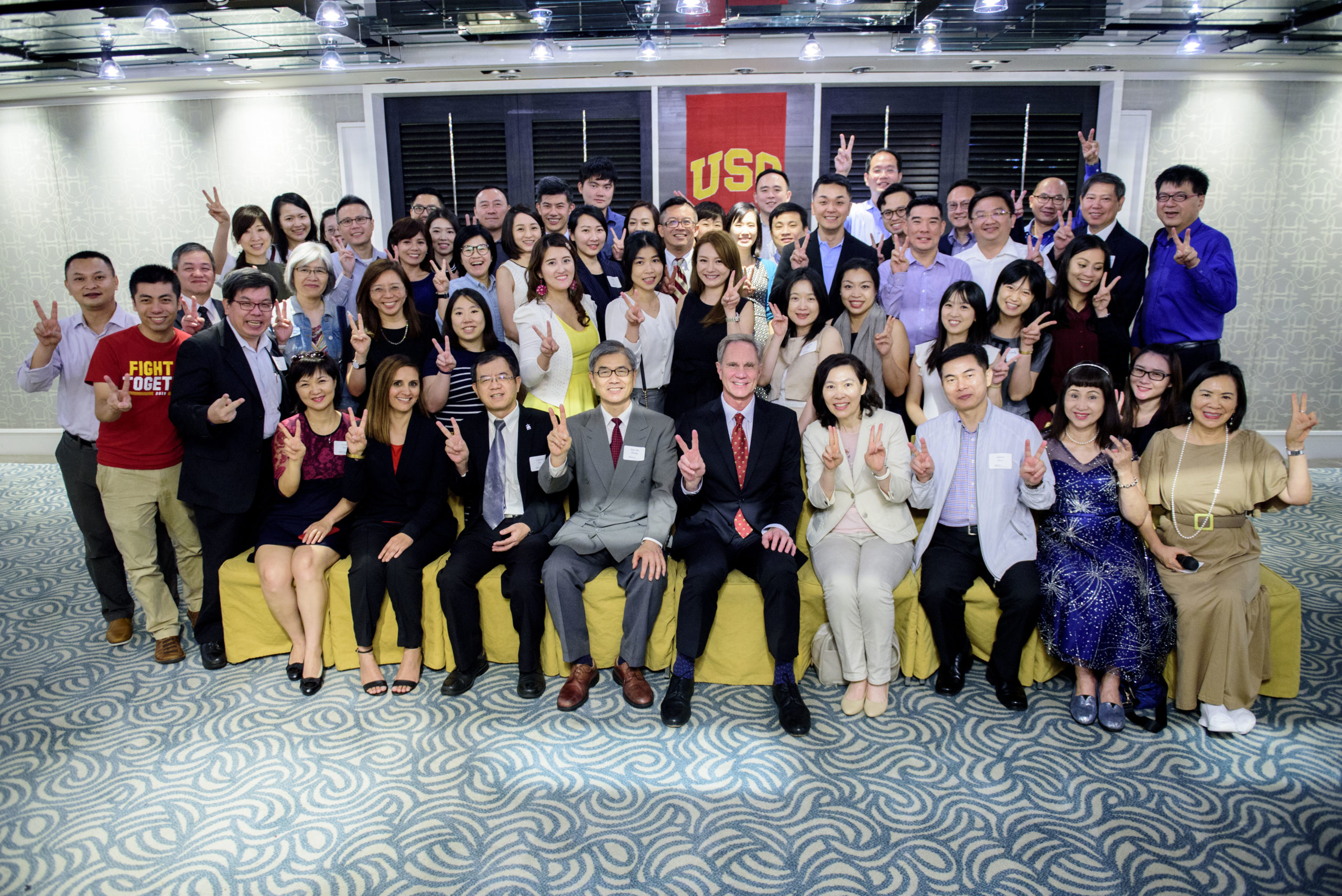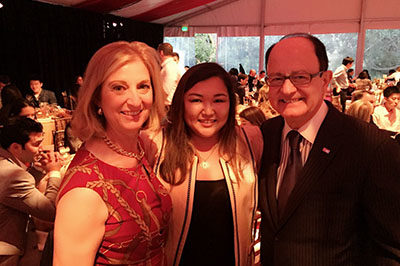USC Price’s IPPAM program has trained nearly 800 graduates from 35 countries. Its distinguished alumni work for organizations including the United Nations, International Monetary Fund, World Bank, Asian Infrastructure Investment Bank and the World Health Organization.
By Matthew Kredell
For 20 years, the International Public Policy and Management (IPPAM) master’s program at the USC Price School of Public Policy has fostered international collaboration and intercultural understanding by attracting mid-career professionals from around the globe to USC to study together.
After experiencing an immersive curriculum that addresses issues of relevance in their countries, numerous graduates have gone on to work as government officials, nonprofit managers, policy specialists, and business and community leaders. In October, about 60 alumni from 10 countries returned to Los Angeles for three days of reunion events celebrating the 20-year anniversary of the IPPAM program at USC Price.
Legacy of global engagement

During the opening event, which hosted more than 180 guests, Dean Jack H. Knott recognized IPPAM’s pivotal role in advancing the rich legacy of international involvement for both USC and the Price School. He noted how the challenges tackled by scholars around governance, effective public and nonprofit management, social policies, sustainability, healthcare, immigration, infrastructure, urban development, affordable housing and other complex issues are faced not only in the U.S. but almost every country in the world.
“That’s why IPPAM is so important to Price, and why we have so much to celebrate,” Knott said, “because it’s not just what you learn here, but what you do with that knowledge in many countries around the world that has a real impact in solving social and economic problems in the countries where you reside. If you count those ripple impacts, it’s amazing what this program has produced over the last 20 years.”
IPPAM Director Joyce Mann explained the program’s history. Twenty years ago, as countries around the world began having the resources to devote toward social programs and building infrastructure, Professor Glenn Melnick had the vision to create a program to serve the needs of international government officials.
That first class included 33 students, and IPPAM has since trained nearly 800 graduates from 35 countries. Alumni work for global organizations such as the United Nations, International Monetary Fund, World Bank, Asian Infrastructure Investment Bank and the World Health Organization.
“In a time when political leaders and movements are in some cases seeking to divide us, it is programs like IPPAM that give us hope for the future,” Mann said. “By bringing people together from different backgrounds, cultures and religions, we play a part in fostering the growth of global citizens. For that, we are very, very proud.”
During a key segment of the opening luncheon, IPPAM’s Dr. Joanna Yu presented a book titled “Transformation” which was created by a team of volunteer students in commemoration of the anniversary. “Joyce, Ann [Abrahamyan], and I collected stories and photos of alumni and faculty attesting to the transformative impact of the program on their lives,” Yu said. The publication features at least one alumni testimonial from each cohort, from IPPAM 1 to 17. “This book,” Yu noted, “is our gift to IPPAM.”
The luncheon concluded with brief remarks from IPPAM Business Manager Ann Abrahamyan, who raffled off more than three dozen gifts donated from IPPAM’s staff, students, friends and long-time vendors. In her speech, she said the gifts were symbolic of what IPPAM stands for: “Loving, sharing, learning, smiling, caring, forgiving, laughing, hugging, wandering, healing, and even more loving.”
Showcasing expertise
The three days were filled with celebratory banquets, panel discussions, workshops and conversations about international governance — a program designed by Yu and Abrahamyan to both engage the returning alumni and to provide opportunities for current students to learn from and network with the alumni.
U.S. Congressman Ed Royce, chair of the House Foreign Affairs Committee and co-founder of the International Conservation Caucus, sent a member of his staff to present a certificate of special recognition for the anniversary.
In two keynote speeches featuring environmental experts and green sector innovators, Terry Tamminen spoke on the challenges of building a sustainable world for the future, and Bridgett Luther underscored the disruptive power of organizing.
Tamminen, CEO of the Leonardo DiCaprio Foundation and former secretary of the California Environmental Protection Agency, noted how the root of sustainability challenges involves people operating in silos, instead of understanding that every living thing on earth is fundamentally and inextricably connected.
“How IPPAM works across disciplines, across countries, across the sectors that when taken together form the recipe for solving the world’s most critical issues – especially climate change – gives me hope,” Tamminen said. “I know that you will all be the first to say I will work across barriers of culture, sector and politics to accomplish a better future than any of us can achieve by operating alone.”
Luther, co-founder of The Disruptive Factory and former director of the California Department of Conservation, told the origin story of her community involvement to build a park with baseball and soccer fields in her neighborhood in North Carolina.
“Think about what you might do about the problems on your own street, your own neighborhood, and how you can make a difference,” Luther urged.
In a panel discussion moderated by an international development expert, Dr. Thomas D’Agnes, four IPPAM graduates – Yasser Ali of Egypt, Tory Damantoro of Indonesia, Jenny Lau of China and Ahmad Majidyar of Afghanistan – discussed the dynamic changes they have seen in their countries over the past 20 years. Ali is the principal of the Elsherouk Branch of Futures High School in Cairo; Damantoro is a transportation policy consultant for the UN Environment Programme and World Bank; Lau is CEO of SinoJet and chairwoman of the Asia Aviation Association; and Majidyar is the former vice president of the Afghanistan Investment Support Agency.
Majidyar has tried to help Afghanistan transition from replication of best practices to innovative solutions.
“Afghanistan is lacking a lot in governance, and IPPAM helped me transition from a field more focused on private investment to diversify my skills,” Majidyar said. “Now I feel I know a lot about governance and can help the government in overcoming its problems. We have to formulate processes based on resources we have rather than having a very good documented policy which cannot be implemented.”
Following her substantive thoughts on doing business in China, Lau said that it was at IPPAM where she learned the importance of giving back. She asked fellow alumni to contribute to the IPPAM student scholarship fund so that IPPAM could continue to be the difference maker for future global leaders. Alumni and guests responded generously.
Dean Knott led a conversation with philanthropist and investor Nicolas Berggruen, founder of the governance-focused think tank Berggruen Institute, on strengthening governance institutions. His book Intelligent Governance for the 21st Century has been a required reading in IPPAM.
Berggruen emphasized that the ideal of government as a service organization has been somewhat lost in Western democracies, where government is often perceived as an instrument of politics or power.
“I think democracy in the West has become so politicized,” Berggruen said — causing many to lose confidence in the government and government agencies, he added.
Lessons in leadership

USC Price Professor of the Practice of Governance Frank Zerunyan and Adjunct Associate Professor Dr. Rym Kaki presented a session on sustainable policy and leadership.
Zerunyan discussed the benefits of collaborative governance, particularly at the local level.
“Cities are the home of innovation, where we serve people as opposed to the little ‘D’ or ‘R’ beside our names,” said Zerunyan, who is a three-term mayor and active council member for the City of Rolling Hills Estates, Calif.
Kaki spoke about the transition a country faces when its governance system fails, focusing on the Middle East North Africa (MENA) region that underwent significant upheaval during the Arab Spring uprisings of 2011.
“A society cannot survive on a social contract that’s completely broken,” Kaki said. “When you’re having different factions of your population and not paying attention to minority rights, you’re not providing a voice for those minorities in your society.”
She noted that there have been some positive gains since the revolutions. The concept of political competition has been introduced, press and media have more liberties, and there’s been a profusion of civil society organizations.
Comparative perspective on health insurance expansion

A third panel explored the different pathways taken by three systems in expanding health insurance over the past two decades. Moderating the panel was Susan Maerki, director of health industries practice at Pricewaterhouse Coopers and an instructor at IPPAM for many of Indonesia’s Ministry of Health officials. The panel featured Dr. Wen-Ta Chiu, former Minister of Health and Welfare in Taiwan, Professor Stuart Schweitzer of UCLA’s School of Public Health who has taught many students from Indonesia, and IPPAM alumnus Dr. Budi Hidayat (‘2000), professor of health economics and social health insurance at the University of Indonesia School of Public Health.
Chiu led off by describing Taiwan’s two decades of experience in providing universal health insurance and discussed how payment systems evolved to incentivize better care. Schweitzer discussed the implementation of the Affordable Care Act in the U.S. and its recent challenges. Hidayat’s presentation highlighted the contributions of IPPAM alumni in shaping the design and implementation of Indonesia’s health financing strategy. IPPAM alumnus, Dr. Giovanni Cucchiaro (’13), attending physician at Children’s Hospital L.A., provided commentary and a physician’s perspective on the three systems.
Closing festivities with a celebration of friendship

The third day of the celebration was highlighted by a visit to the RAND Corporation, where guests had the opportunity to meet with Vice President Jeffrey Wasserman, as well as attend a discussion on the “Challenges and Opportunities in Asia” featuring Dr. Rafiq Dossani, director of the RAND Center for Asia Pacific Policy. Guests also participated in tours of Santa Monica and Hollywood. The farewell dinner reception – themed an “Evening of International Friendship Celebration” – convened nearly 100 alumni and students, staff and faculty at Yamashiro Restaurant in Hollywood.
Alumnus Belem Lamas (’15), an educational ambassador working in China, summed up her experiences, “IPPAM emphasized the importance in fostering strong international bridges by creating lifelong friendships with our colleagues to build a better future. We are in a world that needs creative policy solutions designed by international experts like IPPAM students and alumni. IPPAM builds international skills that are essential in helping all nations across the globe. Most importantly, these skills are key components that set IPPAM students apart.”
In this era of globalization, Dean Knott expects IPPAM to continue its transformative effect in training people to address the challenges faced by nations around the world.
“As dean, I’m proud of each and every one of you and how this program has prepared you for all these exciting endeavors,” Knott said to the students and graduates in attendance. “I look forward to the successes that the next 20 years will bring to IPPAM and all its alumni.”
